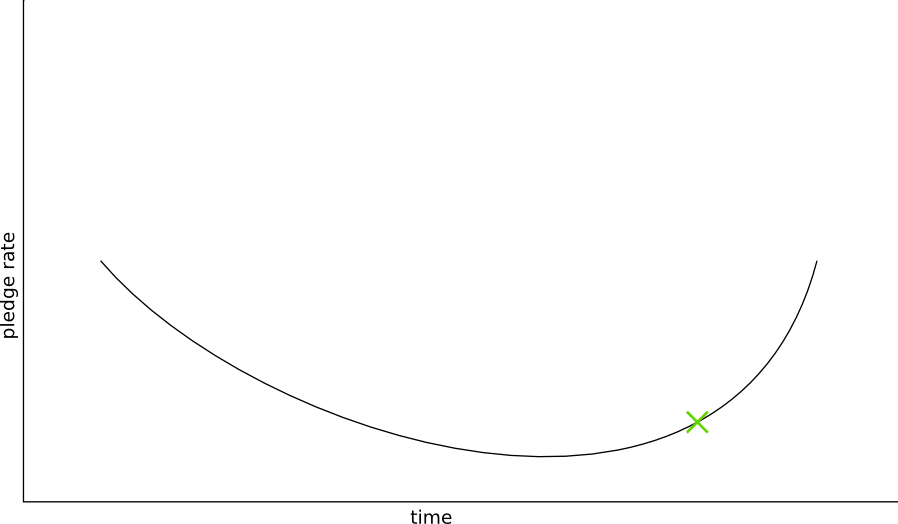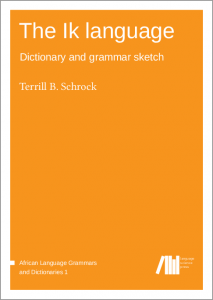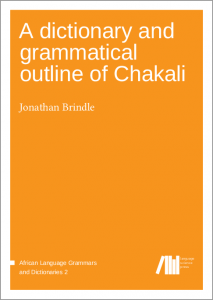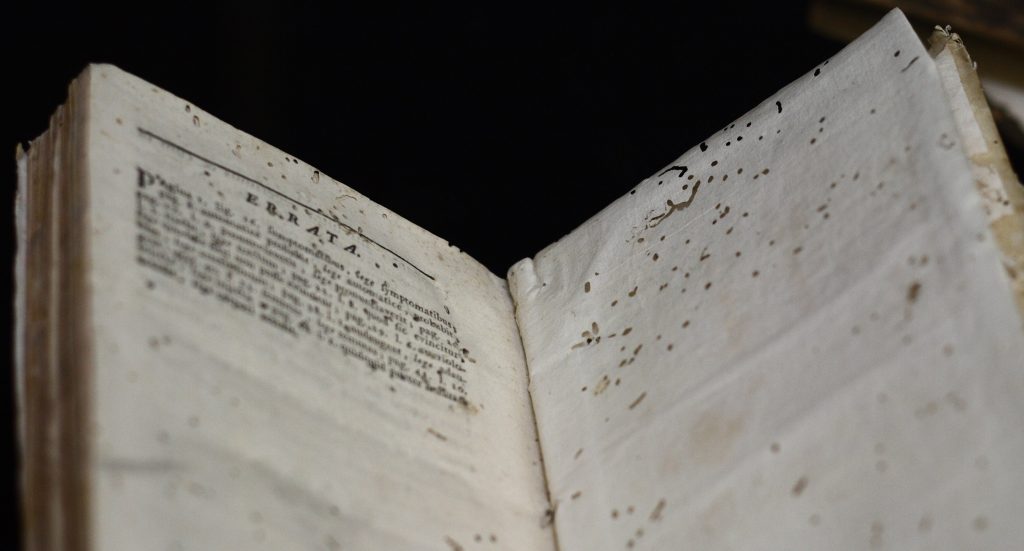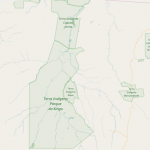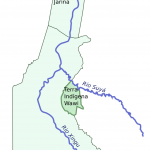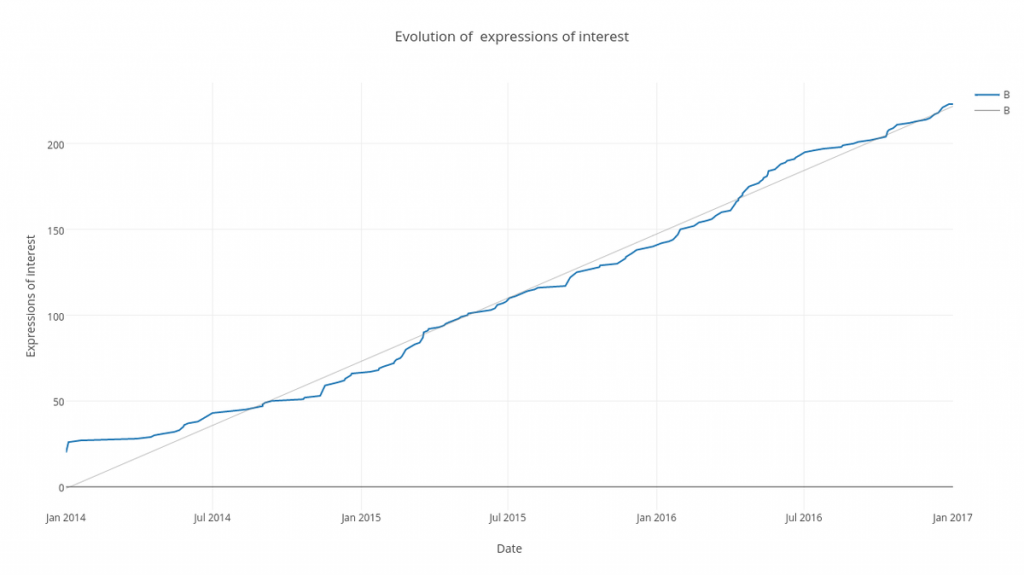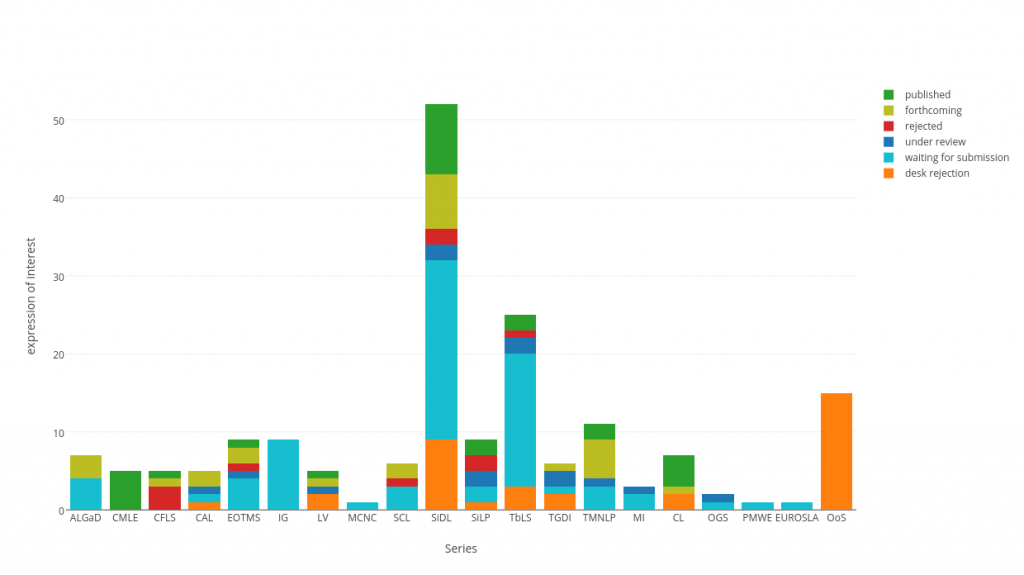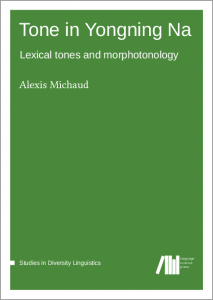In spring this year, we launched our campaign to collect 100 institutional members to collectively fund the future of Language Science Press. The first pledge announced was from U Düsseldorf.
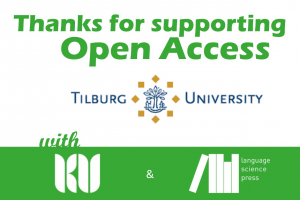 Since then, we have collected 60 pledges from all over the world, with U Tilburg being the latest, making it stand 60/100.
Since then, we have collected 60 pledges from all over the world, with U Tilburg being the latest, making it stand 60/100.
As customary with crowdfunding projects, the support rate is high at the beginning, then drops towards the middle of the funding period (summer in our case), only to rise steeply as the end of the funding period approaches. We see the pledges picking up steam in the last weeks, but we will need a much steeper rise to meet the target! The green X in the graphic marks the position where we are now.

